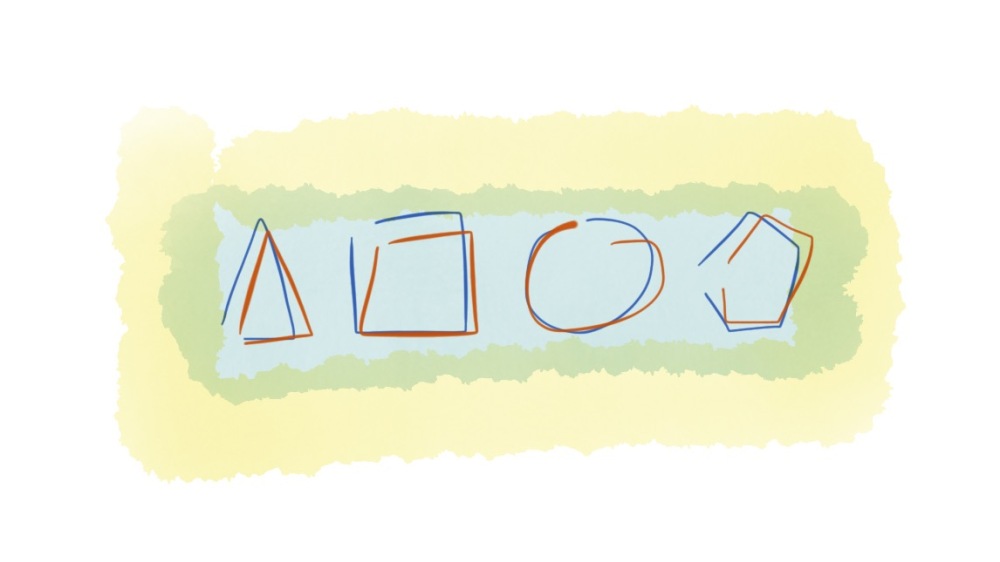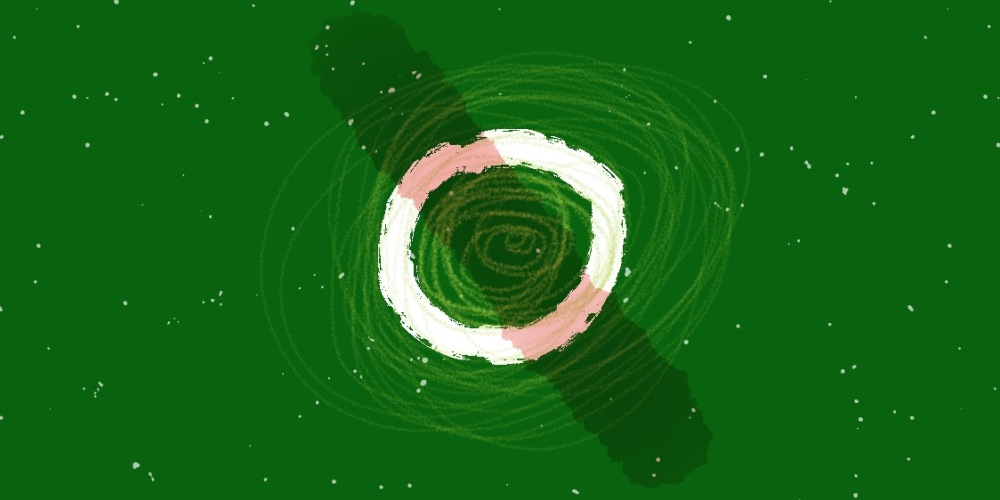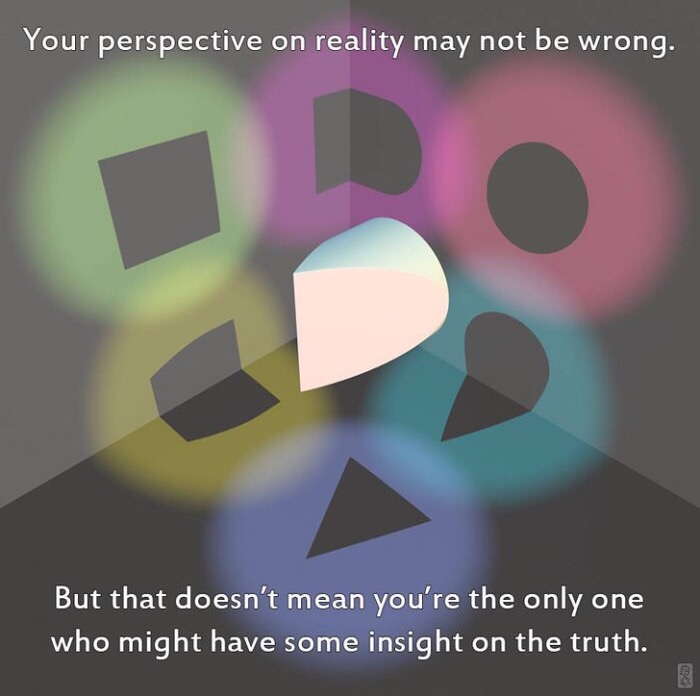Last week I finished a book that didn’t disappoint, Kalamata by Ni Made Purnama Sari. On reading it, I’ve found that we are quite similar, she and I, especially on how we feel and see the world to be revolving around ourselves. I guess she might be another INFP, looking at how much she likes to peer into her microcosm (even though I don’t care for MBTI anymore, these days.) Despite the annoyance at the resemblance, I found a question she herself might really ponder, slipped within the book, that I am paraphrasing here: “How come a person who has everything in the world and can get everything easily, as she was born into a financially fortunate family, thinks she’s suffering so much just because she’s sweating little things that shouldn’t even bother her?”
By that one paragraph, I was aroused and triggered.
I, for one, had also been lucky enough to be born into a family that is fairly happy and well off financially. I thank God everyday that both my parents are alive and well, that we have what we need and can sometimes afford some things we want, that we aren’t a broken family, and that we love and stand by each other. I am lucky that my brother and I are the best of friends, and that my mom and I are getting along more by the days after some long cruel years being irritated by one another, and that my father and I are opening up more as we grow up and old. I realize that not everyone has that. Some people live in a constant drama, not in a way that it is made up, but in a way that it is the reality of their lives. I am grateful that my nuclear family doesn’t get sucked into other people’s dramas, even though there have been countless times that people tried. So, yes, by that standard, you might think I am living comfortably and without troubles that can turn my world into rubbles.
Well, that’s how people can be wrong.
These days I’ve been going about the question of reality. My friend once said that in this world, there could only be one truth, therefore one reality, and the others are wrong. For instance, if it is said that according to science Margot Robbie has one of the most beautiful faces on Earth, then that is the reality: she is one of the most beautiful women; that other opinions that say she isn’t that pretty is invalid. You think that is a terrible example, because it is an example based on perception. But that’s my point, exactly. Reality is an aspect of perception. It is distinguished from the truth.
The truth is the truth, and the way we see the truth is our perception. As a human being, there is no way we can fully grasp the truth, all to ourselves, because we are horribly limited. Now, don’t get too arrogant as to say nothing is impossible for us to obtain, because honestly it is. If we humans think we are not limited, then why can’t we live on the Sun or breathe without tools in the outer space? There are things we are built for and there are that are not. The truth exists all the time, enveloping our lives, and who knows, maybe it has changed a little, maybe it hasn’t, there is just no way to know, because humans can only assume and hypothesise. Even the fundamental condition for science is that it should be debatable, because science progresses. One time it is said that MSG is harmful, and the other it isn’t. Once science said the Earth was flat, and now it is round. There was a time when homosexuality was not innate, and now it is. But is science the truth? It is safe to say that science contains some truth, but not the whole truth. What might be closer to the truth in science is when we say, MSG is harmful when (insert certain conditions), but it is not when (insert other conditions). The truth is tricky.
Then, in relation to the truth, what is reality? It is how we perceive the world. It is how we choose to see the truth. Your reality and mine is different. No one person’s reality is equal to another’s. We are all apples and oranges. No, we are our own apple, orange, grape, watermelon, kiwi, and some other 7 billion different kinds of fruit; incomparable. So how should we know for sure who is more comfortable in life and who isn’t? And who are we to point out to other people that they are more fortunate then we are? In that case, how can we tell ourselves that we bear the heaviest burden the world is giving, compared to others? (Isn’t that what we’d like to tell the world every now and then?)Sometimes I can feel the confusion on people when I told them I’ve gone through bouts of depression for years. I can feel them asking, “What’s actually wrong with you?” Sometimes when my friends come to me for a pair of ears that would listen, they’d accidentally hint that I wouldn’t understand because my life is cozy and has never been a tragedy. Most of the time I feel demanded to understand their irritable behaviors, because life is so hard and I have no idea how evil it can get. Well, have they seen my demons?
I used to think the same way, that in this world they should understand me because I was the one struggling with dysthymia and they don’t know how it’s like. I wanted to be understood and compromised for being a pain in the ass. I blamed my friends for not understanding my condition. Only now I can imagine how hard it must have been dealing with an irritable, short-tempered, long-faced person constantly. And how tiring it can get to try and understand every single time and not be appreciated. Only now I understand that just because they didn’t go through what I went through, doesn’t mean their soul is not as scarred as mine. Life is hard for everyone, and we all get our own spoonful that we busily attempt to handle.
It isn’t right to tell people not to be sad because other people have it harder than they are. That can’t possibly be true because it’s all relative; reality is not the same to you and I. It is better to tell people to be considerate despite their battle, since we are all trying to face our own harsh reality. The half truth is, one that my human senses can grasp, no life is comfortable. Not even if one was a member of the British royal family; rich, famous, and respected–and they were born with it! Not, especially, if one was born in Ethiopia having nothing, not even human rights. We all have our own fights, we face our own demons, we fight our own wars, and no wars are simple wars.
There’s no exact measurement for feelings, so big or small is a very relative term. It doesn’t take into account how big or small a problem really is, but instead how big or small a problem is perceived depends on relevance. If it’s relevant for you, then a simple trouble can make it seem big, if not then it might not bother you at all. Every one of us is tried through the things that are most dear to us, so there is no comfortable life. A problem, however tiny and seemingly unimportant to the eye of the observer, can be so much different to the experiencer. We all know it, but we mostly don’t want to admit it, that nobody is competent enough to say what another person feels or thinks in a given situation, simply because one isn’t that other person–whose life, love, experiences, genetics, somatic, spirituality, feelings, or the lack thereof are dissimilar to one’s own.
What is life without struggle? We think being born from an upper-mid class, well-educated, well-raised family doesn’t come with its own challenges. We think a “comfortable life” exists. No life is comfortable enough, if we care enough. Even if one can get anything one wants, if we look closer, it might only be an illusion. Yes, one can get a car, a fancy laptop, or afford to travels here and there, but that’s only one aspect of life. There’s a whole other different aspects one might not be as fortunate on.
There is always another aspect one isn’t as lucky on, since everyone is essentially trying their best to get to their higher level; and to the next and the next. Even if one isn’t trying too hard, or try at all, our human instincts drag us to move forward, as well as social expectations. That is why somebody who isn’t moving at all will feel uneasy, restless, fidgety–which is a trouble in itself, albeit it being a trouble caused by herself. But there are countless reasons as to why somebody does not or can not move from their current place; and it is another problem to resolve. And when one cracks the code, off she goes, stepping straight into another ladder of another set of problems. There is a saying that life is a series of problem-solving, and death is when there is no more problem-solving needed.
If we keep understating someone else’s pain, then when can the world be a considerate place?
All I know is that the soul is processing every day, every time, on to a higher level. A higher need, a higher want. Our lives are a journey, stepping on one stair to a higher next, and on and on. If you can belittle some one else’s troubles, check again if have gone through enough, understand enough, seen enough–because it might mean you have only seen life with one pair of glasses and not tried the others. This is considering the concept in which Hermann Hesse subtly stated in Siddhartha: if you’ve been through a lot, or at least try “to wear different clothes”, then you have a lot of space in your mind to realize that life is a lot like Maslow’s hierarchy of needs. When we are over the worries of basic needs, we go on to needing security, and then love, and then pride, and so on. Even Mother Teresa had been in dark places. The Prophet Muhammad (PBUH) had gone through uncountable heartbreaks and disappointments. Gandhi by no means led a comfortable life, how angelic he might have been. The Buddha went through all sorts of soul turbulences before he went to nirvana, and decided to ditch needs that he had so hardly acquired as a human being to do so. Mark Zuckerberg, I’m sure, is dealing with a lot as well. And I can guarantee that his daughter, in spite of being born into a billionaire family, she’d have some stuff to sort out too. And it won’t be because she’d be egocentric or self-centered, it’d be because that’s how life is. Reality bites.
Reality bites, but yours and mine aren’t the same.
But they bite all the same.
So, if we still dismiss the hardships of other people as unworthy, then you’ve only been to one part of yourself. Look again. Explore. There’s so much to see, to understand, and so little to judge.
It’s not ours to judge.
Therefore, the hypothesis of the existence of a comfortable life is null.
 —
—


1 comments